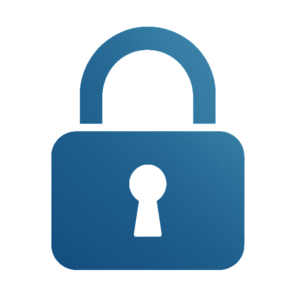
Visit safety is not an option
Secure web hosting must be the norm in 2025. That's why LRob pushes security to the max, so you can get on the Internet with complete peace of mind.
Maximum security for your web hosting
The Internet is a jungle of constant attacks. Nothing should ever be left to chance. That's why LRob applies preventive security best practices and provides you with the best tools to secure your WordPress sites.
Web security by default
ModSecurity application firewall
Effectively blocks malicious requests before they reach your sites. In the event of a repeat offence, fail2ban blocks the attacking IP for even greater security.
Anti-bruising safety
Fail2ban completely blocks repeated unauthorized access to all server services. IP blocking of brute-force attempts on WordPress, Plesk, Email and FTP. Also blocks bots searching for vulnerabilities on servers.
Site partitioning
Each site is isolated in its default system user. If a problem occurs on one site, it cannot affect the others.
Server antivirus
ImunifyAV regularly scans sites.
PHP update
If you forget, we'll take care of it for you!
Daily serve updatesurs
Weaknesses in server applications may also exist (even if hosting companies deny this outright). Updating your software on a daily basis will keep your hosting as secure as possible.
Daily host backups
Outsourced backups with a one-year retention period for maximum peace of mind. You can also set up your own outsourced backup to the FTP server of your choice.
SSL/TLS certificates included
Automatic TLS certificate generation & HTTPS forced by default. Free wildcard certificates available if you manage your sites' DNS zones via LRob.
Strong encryption
SSL/TLS: TLS 1.3, HSTS, OCSP Stapling, DNS CAA, selection of secure ciphers (A+ on SSLLabs).
Secure authoritative DNS
LRob authoritative DNS encrypted via DNSSEC and redundant on 4 servers.
Specific security features for WordPress
Securing WordPress is made easy with the WordPress Toolkit. What's more, your LRob support team will be happy to advise you on a case-by-case basis, if required.
- Control in a glance - Your hosting panel highlights any anomalies in your WordPress instances.
- WordPress security vulnerability detection - Manually check for vulnerabilities and receive alerts when new vulnerabilities are detected, so you can react quickly.
- Automatic WordPress updates - Activated in just a few clicks for maximum security at all times.
- WordPress Login Protection - Server-based IP blocking of brute-force attacks on your WordPress login.
- WordPress integrity check - Check file checksum in two clicks.
- Server antivirus - ImunifyAV regularly scans sites for known malicious files. In the event of an anomaly, you'll receive an email.
- 24 additional safety rules - Activated in just a few clicks.
See the 24 security rules for WordPress
- Change default administrator username (admin)
- Block access to .htaccess and .htpasswd
- Block access to potentially sensitive files (logs, scripts, executables)
- Block access to files containing identifiers
- Blocking bots looking for WordPress-specific vulnerabilities
- Change the default database table prefix
- Disable file editing in the WordPress dashboard
- Disable PHP execution in cache directories
- Disable unused scripting languages (Python, Perl, etc.)
- Disable pingbacks
- Disable script concatenation on the WordPress admin panel
- Block access to the wp-config.php file
- Prohibit execution of PHP scripts in the wp-content/uploads directory
- Prohibit execution of PHP scripts in the wp-includes directory
- Block directory browsing (-indexes)
- Block access to xmlrpc.php file
- Configuring security keys
- Restrict access to files and directories (permissions)
- Block author scans
- Enable automatic updates
- Generate a secure password
- Automatic detection of security vulnerabilities
- Scan site for malicious files
- Define a PHP version with secure support
Choose safety
Take pride in your safety policy.

